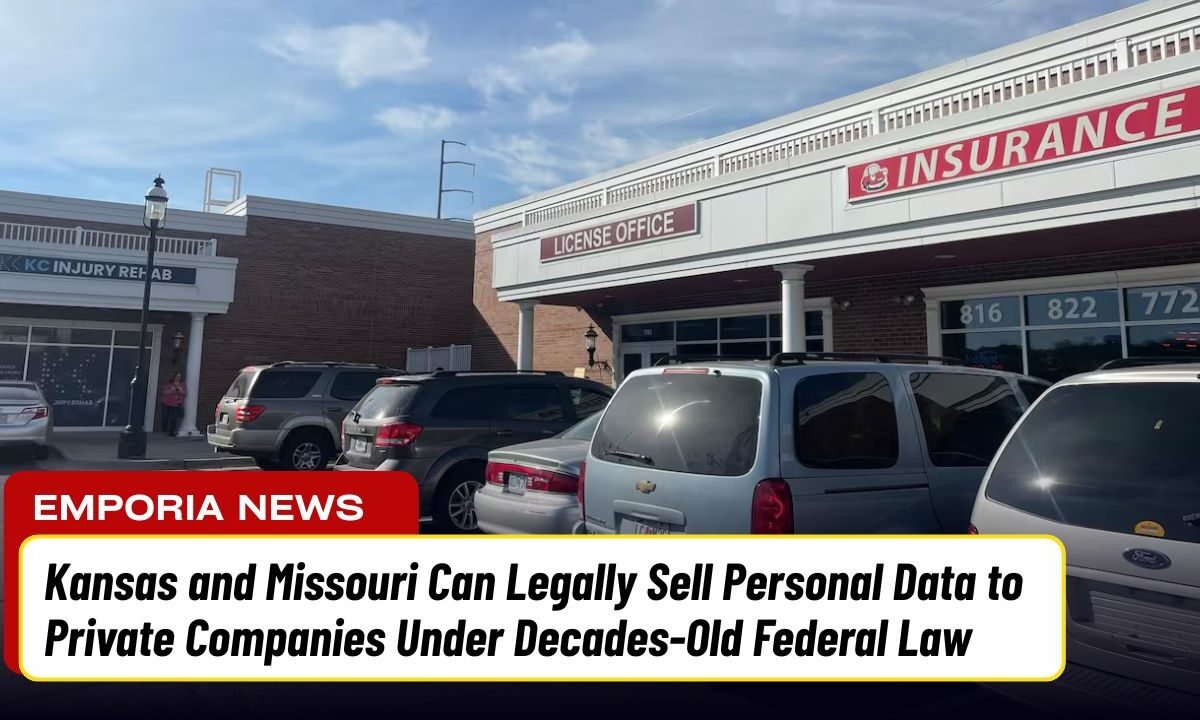Each time residents apply for a driver’s license or register their vehicles, they hand over personal details to their state’s Department of Motor Vehicles (DMV).
But what many people across Kansas and Missouri don’t realize is that this sensitive information is being shared — and in many cases sold — to outside entities.
A recent investigation reveals widespread public concern and sheds light on how federal law permits this practice.
Residents Unaware Their Personal Information Is Being Sold
A trip to the DMV is rarely enjoyable — long waits, early mornings, and packed lobbies. But for many residents, the biggest surprise isn’t the wait time; it’s the discovery that their personal data may be passed along to private companies.
Several locals expressed disbelief upon learning their data could be sold:
- “I had no idea,” said Connie Phelps from McLouth.
- “That’s shocking,” added Shams Fardous Arnab from Kansas City.
- Others described it as an invasion of privacy, questioning how such data sharing is even allowed.
Many residents said they would never knowingly consent to their information being distributed, especially without clearer notification.
The Federal Law Behind Driver Data Sales
What the DPPA Allows
A decades-old federal measure called the Driver’s Privacy Protection Act (DPPA) governs how states handle driver information. While the law restricts public access, it also permits states to sell or share data under specific circumstances.
According to law professor Andrew W. Torrance from the University of Kansas, the DPPA allows data use for:
- Towing and insurance purposes
- Government operations
- Debt collection
- Private investigations
The information shared can include your name, address, date of birth, and vehicle registration details — all valuable to businesses that build consumer profiles.
How Much Money States Earn
The investigation uncovered significant revenue tied to DMV data sales:
- Kansas generated $1,164,000 in 2024, selling information to just two companies — R.L. Polk, a major automotive data firm, and Experian, a top credit bureau.
- Missouri provided records to 5,239 companies in 2024, including banks, law firms, and valuation offices, earning $151,022.77.
Nationally, at least 23 states collected over $282 million from DMV data sales in 2024.
Residents argue the practice “sells them out”, raising serious questions about data privacy and consumer rights.
Can Residents Opt Out? Currently, No.
Both Kansas and Missouri currently offer no opt-out option for residents who want to keep their information private. Torrance notes that while some disclosures appear in fine print, truly informed consent is lacking.
Many residents emphasized the need for:
- Opt-out protections
- Clearer consent agreements
- Even an opt-in system, where data is shared only if the resident agrees
“It’s my data, and I should have the right to protect it,” said Arnab, echoing a sentiment shared widely.
How the States Responded
Kansas
Kansas officials declined to be interviewed and did not respond to submitted questions.
Missouri
Missouri’s Department of Revenue clarified that the state does not “sell” data but instead charges eligible entities for the cost of providing it, as allowed under the DPPA. They also claim no pressing privacy-related issues require updated policies.
Residents in Missouri with concerns can contact:
- Motor Vehicle Records: MVBmail@dor.mo.gov
- Driver License Records: DLBmail@dor.mo.gov
Both states allow citizens to file public records requests to determine where their data has been shared.
The sale and distribution of driver information by state agencies in Kansas and Missouri remains a largely unknown practice to the public. While the DPPA establishes boundaries, the absence of opt-out options and limited transparency contribute to growing frustration among residents.
As privacy concerns continue to escalate nationwide, many believe the states must reconsider how driver data is collected, used, and shared — and give citizens greater control over their personal information.




